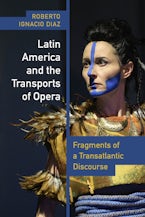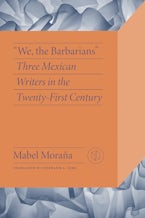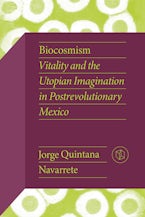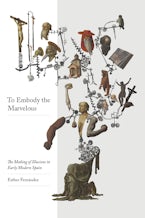- Home
- Performing Latin American and Caribbean Identities
- Latin America and the Transports of Opera

Latin America and the Transports of Opera
Fragments of a Transatlantic Discourse
Latin America and the Transports of Opera studies a series of episodes in the historical and textual convergence of a hallowed art form and a part of the world often regarded as peripheral. Perhaps unexpectedly, the archives of opera generate new arguments about several issues at the heart of the established discussion about Latin America: the allure of European cultural models; the ambivalence of exoticism; the claims of nationalism and cosmopolitanism; and, ultimately, the place of the region in the global circulation of the arts. Opera’s transports concern literal and imagined journeys as well as the emotions that its stories and sounds trigger as they travel back and forth between Europe—the United States, too—and Latin America.
Focusing mostly on librettos and other literary forms, this book analyzes Calderón de la Barca’s baroque play on the myth of Venus and Adonis, set to music by a Spanish composer at Lima’s viceregal court; Alejo Carpentier’s neobaroque novella on Vivaldi’s opera about Moctezuma; the entanglements of opera with class, gender, and ethnicity throughout Cuban history; music dramas about enslaved persons by Carlos Gomes and Hans Werner Henze, staged in Rio de Janeiro and Copenhagen; the uses of Latin American poetry and magical realism in works by John Adams and Daniel Catán; and a novel by Manuel Mujica Lainez set in Buenos Aires’s Teatro Colón, plus a chamber opera about Victoria Ocampo with a libretto by Beatriz Sarlo. Close readings of these texts underscore the import and meanings of opera in Latin American cultural history.
Focusing mostly on librettos and other literary forms, this book analyzes Calderón de la Barca’s baroque play on the myth of Venus and Adonis, set to music by a Spanish composer at Lima’s viceregal court; Alejo Carpentier’s neobaroque novella on Vivaldi’s opera about Moctezuma; the entanglements of opera with class, gender, and ethnicity throughout Cuban history; music dramas about enslaved persons by Carlos Gomes and Hans Werner Henze, staged in Rio de Janeiro and Copenhagen; the uses of Latin American poetry and magical realism in works by John Adams and Daniel Catán; and a novel by Manuel Mujica Lainez set in Buenos Aires’s Teatro Colón, plus a chamber opera about Victoria Ocampo with a libretto by Beatriz Sarlo. Close readings of these texts underscore the import and meanings of opera in Latin American cultural history.
Introduction: Transatlantic Transports
Chapter 1. A Corpus of Fragments, I: Listening to Literature
Chapter 2. A Corpus of Fragments, II: Reading Operas
Chapter 3. Words by Calderón de la Barca: A Baroque Libretto in Lima
Chapter 4. Carpentier’s Singing Moctezuma: A Neobaroque Novella in Vivaldi’s Venice
Chapter 5. Havana and the Ghosts of Opera
Chapter 6. Henze and Gomes: Ghostly Testimonios in Copenhagen and Rio de Janeiro
Chapter 7. Adams and Catán: Magic and Realism in Houston and Paris
Chapter 8. The World in Buenos Aires: Cosmopolitans at the Teatro Colón
Conclusion: Caliban at the Royal Opera House
Bibliography
Chapter 1. A Corpus of Fragments, I: Listening to Literature
Chapter 2. A Corpus of Fragments, II: Reading Operas
Chapter 3. Words by Calderón de la Barca: A Baroque Libretto in Lima
Chapter 4. Carpentier’s Singing Moctezuma: A Neobaroque Novella in Vivaldi’s Venice
Chapter 5. Havana and the Ghosts of Opera
Chapter 6. Henze and Gomes: Ghostly Testimonios in Copenhagen and Rio de Janeiro
Chapter 7. Adams and Catán: Magic and Realism in Houston and Paris
Chapter 8. The World in Buenos Aires: Cosmopolitans at the Teatro Colón
Conclusion: Caliban at the Royal Opera House
Bibliography
Roberto Ignacio Díaz is an associate professor of Spanish and comparative literature at the University of Southern California.
"Rich in detail and persuasive in argument, this superbly written and often brilliant study will delight not only opera aficionados but anyone interested in the transports and transactions that define Latin American culture. A memorable performance by a gifted scholar‑critic. Bravo!"
—Gustavo Pérez Firmat, author of Saber de ausencia: Lecturas de poetas cubanos (y algo más)
"In this insightful, substantial, enjoyable and multifaceted book—the first of its kind—Roberto Ignacio Díaz lays the groundwork for any future literary or cultural study on the engagements with opera by Latin American composers, performers, poets and novelists, and those of the operatic world with Latin America.”
—Efraín Kristal, author of Invisible Work: Borges and Translation
"This book is an interdisciplinary study that sees specific opera performances and practices as a linchpin for understanding cultural and sociopolitical events that define Latin America."
—Chad M. Gasta, author of Transatlantic Arias: Early Opera in Spain and the New World
"Latin America and the Transports of Opera offers a fresh take on the region's literary history by exploring its connections with the ostensibly 'Old World' art of opera—and in doing so, it also prompts readers to recognize the operatic tradition's debts to Latin America.”
—Sarah J. Townsend, author of The Unfinished Art of Theater: Avant-Garde Intellectuals in Mexico and Brazil











